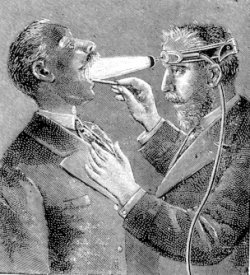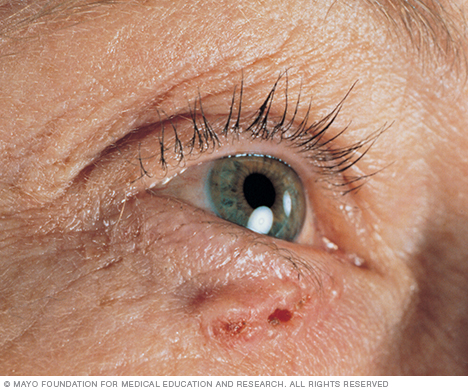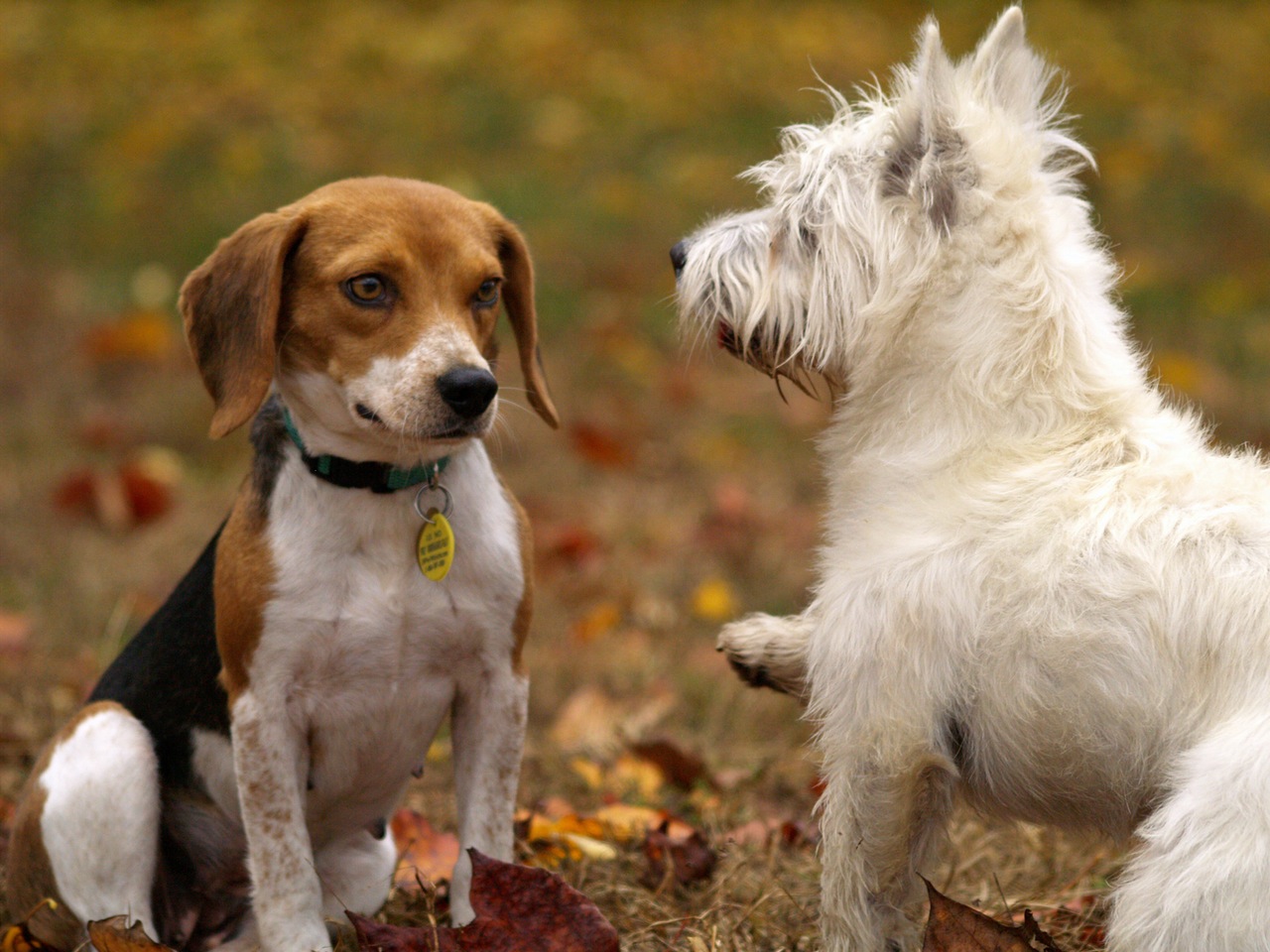How To Get Rid Of Cancer Odor
![]()
If you or a loved one has recently been diagnosed with cancer, you probably have a million questions. Your head may be spinning with all the new words you hear and the treatment options you need to decide about. Even with all that going on, you're probably just as worried about how your day to day life might be affected.
There's a lot of technical and medical issues to ask about, and some of them may seem too small or silly to ask. One question that newly diagnosed cancer patients often wonder about is "Does cancer smell?"
There are two reasons for asking this question. Patients and family members sometimes wonder if they could have found the cancer sooner by being more vigilant about odors. Patients are also concerned that their illness may make them smell bad or give off an unpleasant odor, offending people around them.
Rest assured that you are not alone in wondering about cancer smell. Your medical team has probably heard this question at least a hundred times or more. And while it may seem like a simple question, the answer is actually not quite so simple.
A Cancer Smell: Folklore or Reality?
There are many stories about people who claim to be able to smell cancer, and it may very well be true. Different people have different sensory capabilities. Just as a professional "nose" in a perfumery may be able to easily discern every subtle note in a delicate fragrance while the rest of us can only guess at a limited ingredient list, there may be people with the ability to sniff out cancer.
Before the advent of modern medicine, using odors on the breath was an accepted way of diagnosing disease. Doctors still use the distinctive fruity odor of a diabetics' breath as a marker of the disease. Patients with other diseases, including kidney disease, diphtheria, typhoid, tuberculosis, liver disease and cystic fibrosis, are said to have characteristic scents. Certainly no one would argue with the smell of gangrene as a diagnostic tool.

However, most of the stories about people who can allegedly smell cancer center around somebody's grandmother, an experienced nurse or a lucky—or unlucky—bystander. Few of the stories agree on the actual aroma of cancer, which may mean there isn't one, or it may mean that it varies by the type of cancer.
Even though the stories resemble folklore more than scientific reality, there may still be a grain of truth to the legends. There's at least enough truth in the stories to have spawned several scientific research studies and the quest for an artificial nose, which we'll examine in a later section.
Animal stories also lend credence to the idea that cancer has a distinctive odor. There have been documented cases of dogs who are able to correctly identify the small number of cancerous skin or urine samples in a large group of samples that contain both healthy and cancerous samples. Dogs have been known to pinpoint the affected area of a cancer patient's body, lending credence to the theory that cancer smell is unique.
Dogs are also credited with alerting their owners to cancerous lesions on various parts of the owners bodies. In these stories, the dog is generally so insistent on directing its owner's attention to the spot that the owner eventually seeks medical attention, only to discover that the spot is indeed cancer. These stories are so pervasive that scientists around the world have begun experiments to see if dogs can provide an early warning of potential cancers, or point the way toward finding a non-invasive way to spot and identify cancers.
Do You Need Cancer Treatment in the USA?
Contact us today. Get treatment in UCLA, Stanford, UCSF and other top US cancer centers.
Contact Us
Scientific Research Studies
Many medical researchers believe that cancer is a metabolic disease, one in which the normal cell regeneration process goes awry rather than an invasion of a virus or bacterium. Since there is no "invader", the exhalations of cancer patients contain the same substances as those of people without cancer. As a result, scientists need to identify typical ranges for each substance in both healthy people and people with cancer.
This is not as easy as it sounds because there are more than 250 substances in the air that people exhale, and the proportions vary based on many air quality as well as many health conditions and even diet.

Some scientists, such as Hosam Haick in Israel, are using nanotechnology in research trying to pinpoint the compounds that possibly indicate cancer in exhaled breath. The research has been published in the British Journal of Cancer, and demonstrates that the artificial nose is able to detect cancer in the exhalations of people who suffer from head and neck cancers.
The Atlantic Cancer Research Institute is also working to identify cancer based on exhalations. Their research is focused on lung cancer and uses infrared laser technology to analyze the exhaled compounds. Clinical trials are currently in process.
Researchers at the University of Pennsylvania have identified a characteristic odor associated with basal cell carcinoma, a common and easily cured cancer. They are continuing the research to identify a characteristic odor for the deadlier melanoma skin cancer. Further refinement and commercialization of this technology will provide early identification of skin cancer and also help to eliminate unnecessary biopsies. This research is still several years from being commercially viable, but holds great promise.

Despite their progress, none of these technologies have proven that cancer smell is characteristic and detectable by humans, although the research certainly suggests that cancer changes the chemical composition of exhalations. It is not too far of a stretch to assume it might also change the composition of sweat, tears or other bodily fluids, making it more likely that it might be possible for some people—those who have an exceptionally acute sense of cancer smell.
Animal Studies
Dogs have an astonishing sense of smell. Their ability to identify odors and scents is 10,000 to 100,000 times more powerful than humans are capable of identify. In fact, dogs can identify scents with just one part in a trillion (PPT). Dogs have 300 million olfactory receptors in their highly sensitive notices. Humans average a paltry 6 million. No wonder they catch more scents than humans do. Scientists are testing to see whether their incredible sense of smell can lead to early identification of cancers.
Two dogs in Italy have been trained by scientists to identify prostate cancer in urine samples by scent alone. The dogs are able to do this with more than 90 percent accuracy, exceeding the accuracy of current PSA blood tests. They correctly identify prostate cancer samples even when the samples are mixed with samples from patients with other types of cancer. This implies that each type of cancer may have a unique, characteristic odor. This research was published in the Journal of Urology.

Penn Vet, which is part of Pennsylvania's School of Veterinary Medicine, is working with dogs to identify ovarian cancer by smell in blood samples. The intention of the research is not to use dogs as diagnostic tools, but to help identify the compounds that signify cancer, but which people, with our limited sense of smell, can't identify. The hope is that once identified, other researchers will be able to use the information to create an artificial nose for clinical detection.
A "proof of concept" study published on NIHM.gov set out to determine if dogs could identify bladder cancer by the smell of the patient's urine. The dogs were able to correctly identify bladder cancer about 41 percent of the time, a greater proportion than would be expected by random chance. This seems to provide proof that bladder cancer has a detectable odor, although not one detectable by most humans.
Researchers and medical professionals continue to promote animal studies to help identify the compounds that identify cancer. It's unlikely that dogs will ever be used during diagnoses or physical exams. Their ability to help identify compounds and provide a roadmap for scientists is a more probable path for dogs and their incredible sense of smell.
Personal Concerns
 One of the reasons people commonly ask if they can sense cancer smell is because they are concerned that people will smell it on them. In our society, any bad smell can be embarrassing, but you do not have to worry about people around you smelling your cancer.
One of the reasons people commonly ask if they can sense cancer smell is because they are concerned that people will smell it on them. In our society, any bad smell can be embarrassing, but you do not have to worry about people around you smelling your cancer.
While science will soon be able to identify the compounds that make up the characteristic "smell" of some common cancers, in most cases the concentration of these compounds is too low to be detectable even by people nearby. Normal levels of everyday hygiene should be adequate to ensure that you do not smell like cancer.
Get a Consultation from a Top Oncologist
Expert US Oncologists provide answers to your questions
REQUEST NOW
The following two tabs change content below.
- Bio
- Latest Posts
Michel completed his Oncology training at the University of California at San Diego and specialized in cancers of the kidneys, prostate and testicular cancer at the MD Anderson Cancer Center. With the constant changes in diagnostic tests and treatment options, he believes every patient should have access to the highest level of care.
How To Get Rid Of Cancer Odor
Source: https://cancerdocs.com/blog/cancer-smell/
Posted by: dorroughundfuld.blogspot.com

0 Response to "How To Get Rid Of Cancer Odor"
Post a Comment